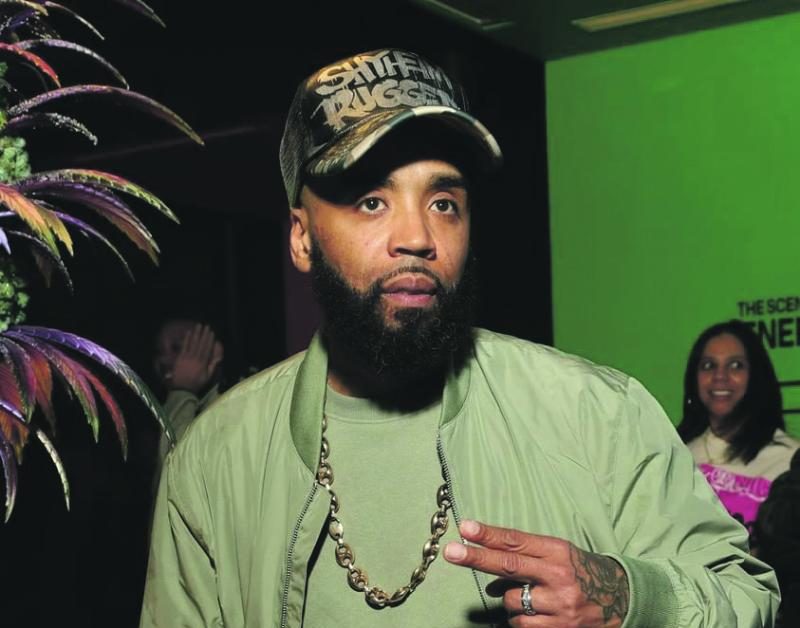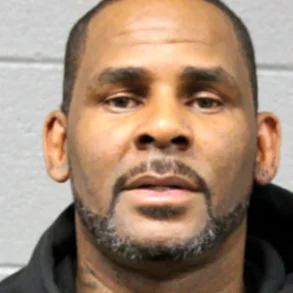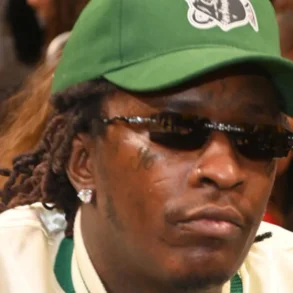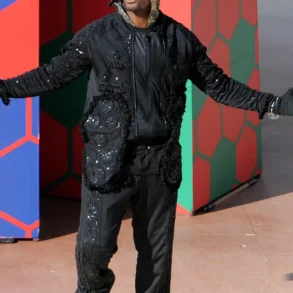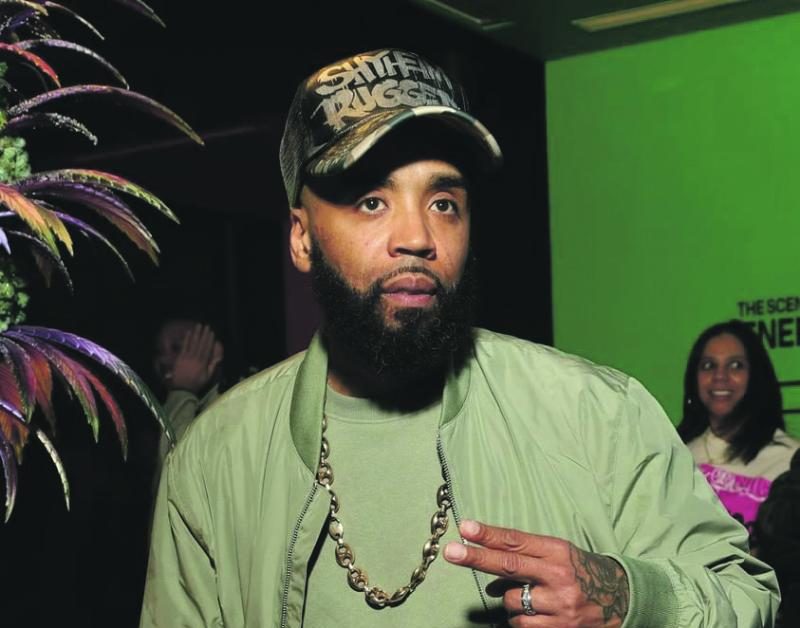
From performing as a child star alongside Tupac Shakur, to surviving a 14-year prison sentence, the rapper Shyheim Franklin has led a life of ups and downs.
Amid the gritty streets and towering skyscrapers of New York City, a teenage prodigy emerged. Shyheim Franklin, known to the world as ‘The Rugged Child’, was more than just a rapper; he was a force of nature. At just 13 years old, his freestyle at Madison Square Garden alongside rap icons Big Daddy Kane, Biggie Smalls and Tupac Shakur cemented itself as part of Hip-Hop history. His debut 1994 album ‘AKA The Rugged Child’ soared to number seven on the Billboard Charts. Wu-Tang Clan’s youngest affiliate, Shyheim’s meteoric rise from Staten Island to rap stardom captivated a generation during Hip-Hop’s golden era. His unapologetically raw lyrics still resonate globally, three decades on.
However, Shyheim’s life hasn’t been devoid of personal struggles. In 2014 he was sentenced to a 14-year prison term. Now, in an exclusive interview with Inside Time, Shyheim discusses his remarkable journey from Hip-Hop stardom to the confines of maximum-security prison, reflecting on personal triumphs and his advocacy for social justice.
How did you first get involved with rap?
“I first fell in love with Hip-Hop through watching. My cousins were very active, tagging and doing graffiti,” he recalls. “Then I went to school and discovered that other kids also rap. So, I started to write more, but my writing began to change when I wrote about what was really happening in my life, even though it hurt. When I rapped about it, I got applause for it. It let me know that other people could identify with the things I was going through.” Shyheim’s early influences include Public Enemy, LL Cool J, Slick Rick and Big Daddy Kane. “I admired these guys, I wanted to be a rapper just like them,” he tells me.
“Round my way I had local emcees; The RZA, Method Man, Cappadonna, Inspektah Deck. Coming from a small place like Staten Island, we had to prove ourselves, we were off to the side from the rest of the boroughs, but that isolation gave us something special the others didn’t have,” he explains. “They were my inspiration because they were tangible, you know? Just making it in Staten Island, being local and famous where everyone knows you’re nice; that was more valuable to me than anywhere else in the world because they’re f*cking with me at home.”
What was it like growing up in Staten Island?
“Our community is small, tight-knit but very wild at the same time. You have drugs, alcohol, and all these things, then you have people that get hooked.” Staten Island, the most suburban of New York City’s five boroughs, has struggled with some of the city’s highest rates of death from prescription opioid and heroin overdose.
How has music helped you overcome challenges in your life?
“Music is therapy,” he emphasises. “I was the type of kid who would go into the bathroom, turn on the water, cry, rap, you know, practice, right? I turned the water on because I didn’t want anyone to think I was in there talking to myself.” These words reveal the personal connection Shyheim has with his craft, using it as a coping mechanism during difficult times.
How old were you when you first had a run-in with the law?
“So, with anything it’s like a seed that’s planted. My first run-ins would start at the dice game; police roll up, you’re not supposed to be gambling, you got a blunt, you go to the precinct. But as you get older, things change,” he says. “I never was a bad person, I just made poor decisions. I didn’t think about the consequences before my actions, until I was already in trouble.”
In 2014, amid legal turmoil, Shyheim faced a pivotal moment. “While out on bail, still making poor decisions, I ended up in a situation that caused the death of another person,” he reveals. This turning point led to a guilty plea for second-degree manslaughter, and resulted in a 14-year sentence that began in a maximum-security facility.
Can you recall any specific experiences in prison that helped shape you?
‘I learnt who I wasn’t, and once I learned who I wasn’t it showed me who I was; it showed me the blessings I had. There was dudes who had been there since I made my first record! People that’s never coming home, you start to see what you’re taking for granted. And I sat in that cell, and it was the first time I had a real conversation with God,” Shyheim recalls. “I learned so much and I tell people, I don’t want nobody to go there. But, if you do go there, it could be a university or a time capsule, it’s what you make it.”
Following his release in 2020, after six years, Shyheim reflects on how his incarceration has shaped his life today. “My life depends on it,” he asserts. “If you look on my office wall, I keep my prison pictures in a frame. So, when I walk out, I know where I was at!”
Additionally, Shyheim shares “I’m a five percenter, part of the Nation of Gods and Earths [an Afro-American Nationalist movement influenced by Islam]. It’s a way of life. Every day I set out for my twelve jewels [knowledge, wisdom, understanding, freedom, justice, equality, food, clothing, shelter, love, peace, happiness]. As long as at night when I lay my head down to rest, I’ve acquired my jewels, I’m happy.”
What role does gratitude play in your life today?
“Man, I’m so thankful I could cry. I’ve been broken to the bone, but I knew I was truly free when I no longer related to the conditions I used to be in, and I no longer subscribed to those lower desires.”
For people currently serving time, Shyheim offers this advice: “Work on yourself, and don’t try to live outside because that shit will stress you.” For aspiring rappers, he suggests: “Fix your real life, get your life in order, then do business. Learn business because no matter what industry you’re in, it’s still business.”
Since regaining his freedom, Shyheim has been a vocal supporter of RAPP (Releasing Aging Prisoners on Parole). He has also initiated ‘The Rugged Road To Recovery’ – a wellness retreat that provides support and mentoring for young people in recovery, in honour of his mother, Marilyn Franklin.
With a host of new music and live performances, Shyheim is back doing what he does best. Looking ahead, he reveals an exciting new project – a one-man play about his life. Opening this month in Copenhagen, Denmark, the play promises an intimate glimpse into the rapper’s journey.
From a young age, Shyheim displayed remarkable maturity. His capacity to triumph over adversity embodies the unyielding spirit of The Rugged Child. But the resilience needed to navigate the challenges of the streets, survive the harsh realities of the music industry as a child star, and withstand a lengthy prison term, is a testament to Shyheim Franklin’s character. It is this enduring resilience, coupled with his talent and star quality, that will define his legacy as a luminary of Hip Hop’s golden era.
Billy Scott began a BA (Hons) degree in English Language & Literature with the Open University while serving an eight-year sentence, and is now studying for an MA in Creative Writing
This post was originally published on this site be sure to check out more of their content.




